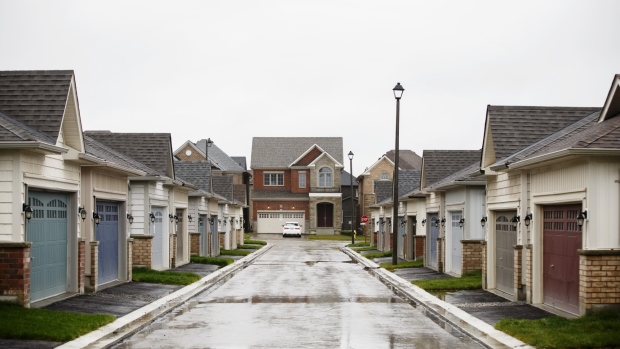A prominent economist is urging regulators to revisit mortgage stress tests in Canada, arguing that the new rules implemented early last year are too rigid.
CIBC Capital Markets Deputy Chief Economist Benjamin Tal is calling for a more flexible benchmark for the B-20 mortgage stress test, which took effect in January 2018 in order to address imbalances in the housing market and household debt concerns.
“The stress test imposed on the market was probably necessary, since there was a need to save some Canadian borrowers from themselves,” Tal wrote in a report published Tuesday. “But is 200 basis points the right number?”
The stress test on uninsured mortgages, which was mandated by the Office of the Superintendent of Financial Institutions (OSFI), was meant to ensure homebuyers who put down at least 20 per cent could cover their payments at the Bank of Canada's five-year benchmark rate or two per cent above their actual mortgage rate.
Tal argues the stress test, which he says was imposed at a time when the housing market was already slowing and as credit quality was improving, has some shortfalls.
He said it doesn’t take into account the rise in average personal income in Canada, or that a person gains more equity over the course of their mortgage term. Tal also said B-20 doesn’t consider the lower risk of longer-term mortgages and is partly to blame for the rise in alternative lending.
Activity in Canada’s previously-hot markets have slowed since the stress test was implemented. The latest Toronto Real Estate Board data revealed flat sales in March, signalling relative stability in the market, while Vancouver’s real estate board reported sales in the region sank 31.4 per cent year-over-year last month.
Tal is not the first to urge regulators to take another look at B-20. TREB has also called on OSFI in recent months to revisit the stress test to cut potential homebuyers some slack, arguing the rule is making it difficult for them to qualify for a mortgage, which could negatively impact the overall housing market.
The federal government has made an effort to make the country’s most expensive markets more accessible, especially for first-time homebuyers, setting aside $1.25 billion over three years for its First-Time Home Buyer Incentive. Under the proposal, Canada Mortgage and Housing Corp. will provide up to 10 per cent funding for new homes and five per cent for existing homes to reduce the cost of mortgage payments.
However, Tal said the program won’t be a game changer, estimating that it will impact only three per cent of borrowers.








